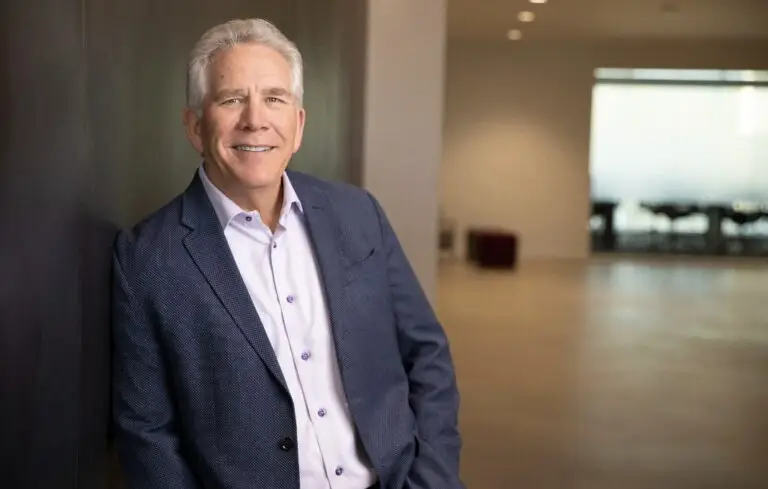Once upon a time, Patty McCord was the chief talent officer at Netflix, helping build the famous corporate culture that shaped the tech giant into the industry leader it is today.
When McCord got to Netflix in 1998 (a year after Reed Hastings and Marc Randolph founded the company), the company was nothing but a blip on the radar and a burgeoning mail-order DVD rental business, not even yet subscription based. By the time she left in 2012, Netflix had become a streaming behemoth that was just about to put Blockbuster out of business.
McCord has since gone on to speak about building a thriving workplace culture and author a book about her time at Netflix, “Powerful: Building a Culture of Freedom and Responsibility.” To her, creating a high-performing corporate culture, such as the one they developed during her time at Netflix, isn’t as much about building as it is reducing.
“Some of the most innovative work I got to do at Netflix wasn’t to create new stuff, it was just stop doing the stupid stuff,” she told Chief Executive. For instance, the annual review—McCord says feedback should be constant, not once per year.
“I think we should get our cues from sports coaches…they certainly don’t sit down with their players at the end of the season and say, ‘Well, you really sucked out there, you’re the reason we lost.’ If you talk to professional coaches they’ll tell you that they sit down with every player before every game.”
In the work world, McCord says it should be the same way. If a company is creating a system designed to make employees perform better, why would they give that person feedback only once or twice per year? For the former Netflix executive, her book is meant to get CEOs and other leaders to question why they do things: “I want them to be able to step back and say, ‘Why do we do this? What’s the purpose of this exercise?’”
What companies get wrong
Along with public speaking and authoring a book, McCord does a lot of consulting work—trying to bring that Netflix magic to different kinds of companies, from 200-plus-year-old banks to Fortune 500 organizations and Silicon Valley startups alike. Across the board, she sees similar problems in the efforts to create a high-performing corporate culture.
“What a lot of companies get wrong is they don’t translate what’s important [for employees] to get done. When I’m an employee and I’m all on my own, and I have this great idea, do I do it or not? I mean, I need to know,” McCord says.
Often times, it’s helping employees know what the company doesn’t do. For instance, Netflix doesn’t do streaming sports and if an employee wants to do streaming sports, maybe it isn’t the right company for them, she says. Great leaders help employees understand where they fit into the organization and how they help serve its purpose and strategy.
In October, former Google Talent Chief Laszlo Bock will keynote Chief Executive’s CEO Talent Summit at West Point, sharing exclusive insights into what makes great teams, and great leaders.
Click Here for event information.
“People have power until they have to ask for permission, until they have to follow the rules, so my perspective is people will have better judgment if you give them have more context about where they fit inside of the organization,” she says.
No more f-words at work
Another lesson McCord imparts from her time at Netflix is getting rid of the f-word: family. She says one important lesson to building a corporate culture is to never tell employees, “We’re a family.”
“We’re not family, and it’s not the undying love you have for your family. Like you’re going to loan your brother-in-law money and he’s not going to pay you back but you’ll do it anyway for family harmony. That would be just stupid to do at work,” McCord says.
The family line rings hollow when a company needs to lay its employees off or it merges with another organization. This “implicit broken promise is partly what makes people cynical,” she notes. The more people at work understand it’s a business, the better off they’ll be.
Another instance of this is how many companies—especially startups—focus on a paternalistic attitude towards taking care of their employees, McCord says. They offer perks like free alcohol, food, games. She spoke to a startup that invested in a keg because another startup nearby offered its employees beer on every floor.
“I told them, ‘You do know that companies don’t exist to make happy employees?’ And I swear to you, they had that look like your dog has when he hears a noise you cannot. We’re here to serve our customers and the customers pay us money, and that’s called revenue, and then we subtract from it things that we spend like kegs and your salaries, and what’s left over is profit. To this company, I’m like, ‘This is why you don’t have any profits.’”
The same issues everywhere
The cultural issues that have popped up at companies like Uber are not unique to Silicon Valley, says McCord. While the male-dominated valley has historically been unfriendly to families and women (McCord recommends Emily Chang’s book, “Brotopia”), it’s no better at corporations across the country. For instance, she notes that maternity leave is a disability policy, the same as breaking your leg.
“That’s really messed up…This is a whole other area where I don’t know what the answer is, but I do know that when we look ahead at the kind of workers that we’re going to need in this country, we can’t just solve [problems] for working men.”
Similarly, like in Silicon Valley, there’s a never-stop working culture across the country where people often have the inability to work remotely and must continue late into the night. This means workers have to travel for long distances each day to commute to work and yet, they’re still logged onto their phone at night. To this point, McCord says employees are already working remotely.
“I have these exact same conversations with a huge bank as I do with a Silicon Valley startup.”
McCord pleads with CEOs to look at things differently, regardless of what company they’re running and where it’s located. “Start questioning the things that you’ve always done, some of the basic tenets and how you manage work. Pick them apart,” she says.







